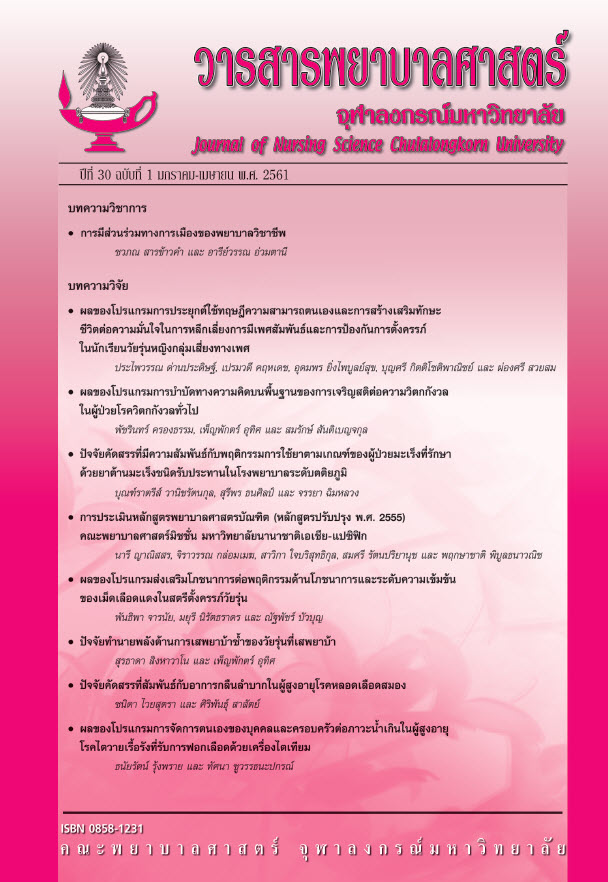ผลของโปรแกรมการบำบัดทางความคิดบนพื้นฐานของ การเจริญสติต่อความวิตกกังวลในผู้ป่วยโรควิตกกังวลทั่วไป
คำสำคัญ:
ความวิตกกังวล;โรควิตกกังวลทั่วไป; การบำบัดทางความคิดบนพื้นฐานของการเจริญสติบทคัดย่อ
Purpose: The study aimed to test the effect of mindfulness-based cognitive therapy in patients with generalized anxiety disorder.
Design: Quasi-experimental research.
Methods: The sample consisted of 40 patients with generalized anxiety disorder who were receiving outpatient services from a psychiatric clinic. They were matched by gender and anxiety scores and then randomly assigned as pairs to either the experimental or control group, 20 subjects in each group. The experimental group received the mindfulness-based cognitive therapy program while the control group received regular nursing care. Data were collected by 1) the demographic data form, 2) the State-Trait Anxiety Inventory form Y- 1, 3) the State-Trait Anxiety Inventory form Y-2 and 4) the ruminative response scale. All had content validity. The Cronbach’s alpha reliability of the 2nd to 4th instruments were .87, .88 and .85, respectively. Descriptive statistics and t-tests were used in the data analysis. Findings: 1) Mean of the state and trait anxiety of the experimental group after receiving the mindfulness-based cognitive therapy program was significantly lower than before receiving the program, at the .05 level.2) Mean of the state and trait anxiety of the experimental group after receiving the mindfulness-based cognitive therapy program was significantly lower than that of those who received regular nursing care, at the .05 level.
Conclusion: The program has been shown to be effective at reducing anxiety in patients with generalized anxiety disorder.



